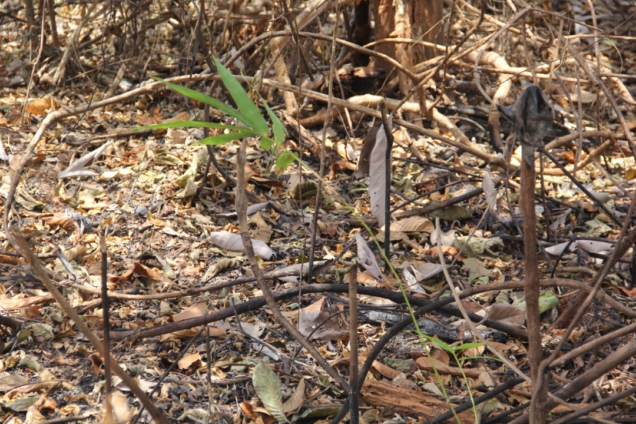Agric experts are advocating the adoption of climate change friendly technologies to ensure an all year round sustainable crop production in Ghana.
Farmers in Ghana are grappling with low crop yield owing to unpredictable weather patterns and poor soil quality.
Consumers in general are having to pay astronomical prices for foodstuff on the markets in the wake current economic crisis.
The situation, they feel, could have been prevented if the country was able to produce enough to feed the citizenry.
Those in the agriculture value chain are attributing the challenge to climate change impact.
Speaking at an EU-Ghana programme on how to adapt agriculture to climate change in Ghana, an Agriculture Extension Officer from the Wa District of the Upper West Region, Nafisa Maham, said the poor quality of soil is sometimes caused by certain unhealthy farming practices which have been necessitated by climate change.
“Farmers now get low yields, when it’s time for harvesting, and the weather pattern, they are not certain when it’s time for planting.”
She added, “regular burning of the farmlands after harvesting” causes the soil to lose rich nutrients required for the next planting season.
A co-discussant at the programme who is an Agricultural Development Programme Assistant for CAMFED Ghana, Grace Efua Amponsa, observed that adopting climate change friendly technologies can make life better for farmers.
Illustrating success stories by some organisations, she cited digitalisation of all sectors of the agriculture value chain such as production, service and markets as against the traditional value chain.
According to her, “they use for instance, GPS Mapping to give the farmer an overview of what they have right now, and this will advise on how to fertilise the farm, when and how and with what.”
Senior Agricultural Officer with the Ministry of Food and Agriculture, Ahmed Gibrilla, said government was implementing policies to reduce the impact of climate change on Ghana's agric sector.
European Ambassador to Ghana, Irchad Razaaly, emphasised the significance of adaptation to climate change in Ghana.
He noted that “if we are able to improve the practices, we can use agriculture as a leverage to address the consequences of climate change.”
Razaaly said as a big actor in Ghana’s agriculture sector, the EU is “investing €132 million in Ghana” to address various issues in the country’s agricultural sector, including infrastructure.
The climate change discussion programme was held at the Centre for Climate Change and Sustainability Studies at the University of Ghana.
Latest Stories
-
We can’t fight galamsey, it’s a waste of time – Former MP
42 seconds -
Gyamfi Kumanini SECTECH appeals for urgent government support amid infrastructure crisis
5 minutes -
Bright Simons exposes rot at Development Bank Ghana
8 minutes -
Ghana and neighbours host 160,000 displaced persons as EU pledges €10m support for West Africa
11 minutes -
Bonn Climate Talks: Africa has eyes on $1.3 trillion climate finance roadmap
13 minutes -
Career Fair inspires rural students in Tano North to dream bigger
17 minutes -
Bridging Africa’s data science and artificial intelligence gap: How ERDSI is leading the change to meet global demands
18 minutes -
Over 200 former MMDCEs meet Bawumia as NPP flagbearer race intensifies
32 minutes -
Commitment to fiscal responsibility key to economic stability – Stanbic Bank’s Oforiwaa Attipoe
32 minutes -
PMI crowned champions of the 2025 GMA Group CEO’s Cup
49 minutes -
Fidelity Bank launches ‘Wheels and Homes Expo 2025,’ bridging gap to home and car ownership
55 minutes -
OSP vs Ofori-Atta: Former Kufuor advisor shoots down political colourisation debate
1 hour -
Commissioner of Insurance charges insurers to champion informal sector products
1 hour -
U.S. visa is a privilege, not a right – Embassy in Ghana
1 hour -
Big Chef S4: Rena bids her brother, Jaden, goodbye; Serwaa clinches 2nd Star Chef title
1 hour

